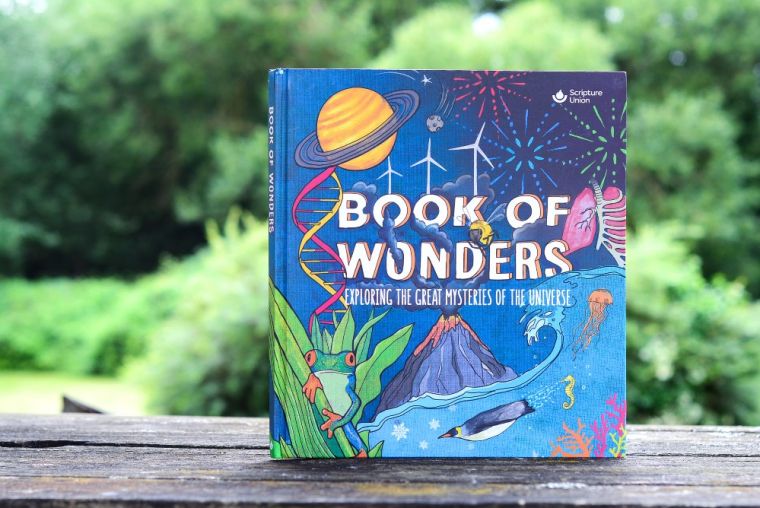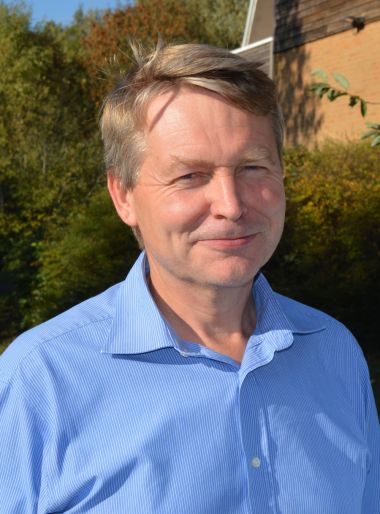Are science and faith really incompatible?

Scripture Union has just published a new children's book in partnership with The Faraday Institute called The Book of Wonders.
Full of interesting facts and colourful illustrations, at the heart of the book is the message that creation is wonderful - and so is the God who made it all.
Scripture Union's National Director Myles MacBean talks to Christian Today about the relationship between science and faith, and why it's important to teach children that they are not in conflict with each other.
CT: It seems like Christians often have to repeat the message that faith and science are not mutually exclusive, and that the supposed conflict between the two is more of a perception that non-Christians have?
Myles: I think that's because of the almost unwritten presuppositions out there, that the world can't see any reconciliation between faith and science as being feasible. That's one of the challenges when it comes to engaging with children and young people outside the church.
In the last few years, we at SU have been re-focusing back on our roots and thinking through the question of: how do we communicate, present and join the faith journey of children and young people who have no contact with church whatsoever?
We call them 'the 95' because roughly 95% of children and young people don't have regular contact with church. When you think of them and what they absorb from the media, the link between science and faith is probably one of the questions in their mind.
We have a phrase at SU: 'going where the children are but the Gospel isn't.' As part of that, we're always asking ourselves: what are the key questions in the minds of children and young people today? Because they're not the same as 50 years ago.
It's worth the risk to engage appropriately and contextually with young people on big subjects like science and faith because if they are nowhere near church and have no biblical worldview, then connecting on common ground like this is really important.
CT: Perhaps a lot of people outside the church, adults as well as young people, expect that there is no connection between science and faith, and that it's not possible to believe in both?
Myles: Yes, because on a superficial level that's the story that tends to be told in the media. Even in this Covid situation, we often hear phrases like 'the science says', but we can fundamentally misunderstand what science is.
My first degree was applied physics and my PhD was in quantum electronics, so I am coming at this issue from both sides as it were. It's interesting because if you talk with professional scientists - even those who are atheists - most of them would recognise in thinking through the metaphysics - or philosophy of science - that there are limitations and boundaries in terms of what science can tell us. And so most are willing to engage in a more open discussion about those questions rather than this over-simplification that we see in our media.
That's not to say that every Christian reconciles scientific method and their Christian faith in the same way. There are obviously different views among Christians over that and we here at SU are not trying to give a definitive answer to that question. The point of the book is rather that we can all come together to say that we live in a created world and it is a world of wonder.
We want to encourage children as they explore that world of wonder to not be afraid of using scientific method appropriately, and recognise that they can embrace all of that wonder from a faith perspective as well as scientific one.

That was the great thing about partnering with the Faraday Institute. They were able to bring to the book the insight and wisdom of real research scientists who also have a real personal faith. Their perspectives are shared in excerpts throughout the book in which they talk about their personal faith and the ways in which they are exploring space and creation as professional scientists who are Christians.
CT: How important is it for young people to have these people as role models?
Myles: They show that even if you are being called by God to a life of faith, you don't have to give up your scientific interest - or vice versa, if you're really being called to be a scientist or to love creation, you don't have to give up your biblical worldview. They are not incompatible. In fact, I would say the opposite. Some of the greatest scientific research has been done by men and women of faith.
As Frances Collins, the Templeton Prize winner, has touched upon, science and faith can be seen as complementary once their proper domains are understood. The way that Christians reconcile these domains can be different but the point that we want to get over is the fundamental one of connecting with children and young people to say: science and faith are reconcilable.
CT: Were you a Christian when you were at university studying physics?
Myles: I was yes. I came to faith at around the age of 16 or 17 so I went through university as a Christian and was strongly supported by a youth fellowship at my local church and the Christian Union at Strathclyde and then Glasgow University. That was a very formative time for me.
But I would sometimes come up against challenging situations in a typical physics department as there weren't that many Scientists around me who were openly living out their faith. One time, I was attending a lecture series about the application of physics to the biological world, things like the physics of the eye and so on, and the lecturer would constantly bring evolution into the discussion when in principle you don't need to apply an evolutionary mindset to the physics of the eye. So, being the kind of guy I was at the time, I piped up and asked my professor 'why do you keep bringing evolution into this when we don't really need it?' and he said 'oh MacBean, you're one of those Christians, aren't you?!' There was that attitude sometimes.
CT: It seems like the kind of book that young and old can sit down with together and enjoy?
Myles:I think parents who haven't got a strong relationship with the church but are comfortable talking about the world from a 'created' perspective will find this a useful book to use with their children.
Personally, I really delighted in it as someone with young grandchildren and I recently sat down with my grandson with a copy - when covid rules allowed him to be with me! He's not of reading age yet but we had a great time looking through all the pictures together as the graphics are so rich. The pictures really draw children into that sense of wonder. By the time we had finished reading the book together, I was amazed by how many animal names and dinosaur names he knew. I could see how, if over years, that became one of his bedtime books, he would be drawn into that book in a very useful way.
CT: The illustrations are so beautiful and very colourful.

Myles: Very much from day one, the quality of the book was very important to us. The medium is the message, as they say, and we believe really good quality graphics can enhance the message of the book. But with the Faraday Institute's help, it's also very factually correct in terms of the science, while also pointing out some of the areas where Christians will differ in their interpretation.
CT: It's interesting that your book is being released after a study by the National Literary Trust showed that the gap between girls' and boys' reading habits has grown during lockdown.
Myles: Yes, and what was worrying was that this gap was there already but it only increased during Covid. This book would be ideal for boys and any children really who may be less interested in fiction and more interested in non-fiction or how-to books. This book would certainly draw in that kind of child in a very big way.
Whatever attracts the child, we do think that quality books like this will help parents, schools and libraries to try and reverse this challenging trend, especially at a time when children are facing some of the biggest challenges they've faced for generations, and parents are trying to maintain their children's interest in reading at a time when that's not easy.
It's just perfect for sitting down next to the child and together engaging with a book, and that is really a metaphor for our new strategy at SU going forward, which is to help encourage, facilitate and coach adults of faith in getting alongside children and sitting down with them. Spending that valuable time with a child and journeying together with them is probably the greatest gift you can give a child in today's day and age.
And the amazing thing is that we learn too. I'm sure many adults sitting down to read this book with their kids will learn something as well because it explains all sorts of interesting facts like the detailed workings of the eyes and the lungs and the blood and so on. A lot of us will have forgotten that kind of thing since our own days at school.
CT: It sounds perfect for parents and grandparents who themselves don't know much about it!
Myles: We find that the best approach is to be honest if you don't know something. We coach adults who are interested in working with children and one of the things we tell them is that today's young people have a very fine-tuned radar for hypocrisy - if you try it, you'll be found out! Just admit when you don't know something because, believe it or not, that actually helps bond the relationship.
Rather than trying to pretend you know something when you don't, it's fine to sit down and say: let's read the Book of Wonder together and let's explore the ultimate book of wonder together, the Bible. That approach connects best with 'the 95'. The younger generations generally have this characteristic of distrusting authority and hypocrisy, so the greatest thing we can do as Christians with an interest in ministering to children and young people is to not pretend to be the point of authority but point them to Jesus and Scripture, the true authority; and not pretend to be all-knowing and perfect but point people to Jesus, who really is all-knowing and perfect.
CT: You're launching your new mission framework, Revealing Jesus, on 14 October. What's it all about?
Myles: The launch will be a short one-hour presentation about how we are focusing right down onto 'the 95'. In a way, it's just re-emphasising what we have done historically since 1867 - going where the children are but the Gospel isn't. Back in the Victorian days, this was in fairly radical ways, going onto the beach to talk to kids about faith or going out onto the streets of London, where children were sitting on the steps outside pubs, and talking to them about Jesus. It was so radical.
It's about empowering individual Christians, volunteers and their churches to reach out and to create opportunities for children to connect, belong and then to explore with the Bible, respond to Jesus and grow in faith. We were delayed a little in launching because of Covid but it's absolutely right for this time as so many churches try to get their head around how in this current environment and the modern world we can engage with young people to explore the Bible and give them that opportunity to respond to Jesus.











